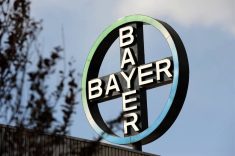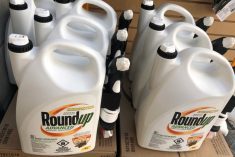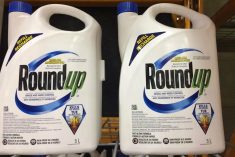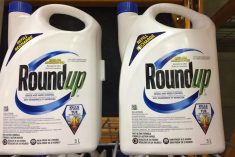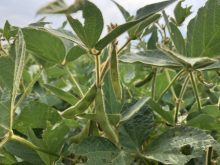Chicago | Reuters — Bayer is exiting the seed treatment equipment business in the United States to help the company’s finances, according to an email sent to customers that was seen by Reuters on Wednesday.
Why it matters: Bayer, a major supplier of Canadian agriculture inputs, has struggled with weak earnings, rising legal costs and a lagging share price.
A spokesperson confirmed that Bayer was exiting the business, which manufactured equipment involved in the process of treating farm seeds with products like fungicides and insecticides before planting in efforts to protect crop yields.
Read Also

U.S. grains: Soybeans continue gains on Trump’s China comments
Chicago | Reuters – Chicago Board of Trade soybeans continued a three-day rally on Friday, fuelled by President Donald Trump’s…
“This is a difficult decision, but necessary to help secure the financial future of the company,” the email said. It added that Bayer decided to direct resources toward primary areas of strength in crop protection products.
The company will begin the process of closing a seed treatment equipment manufacturing facility in Shakopee, Minnesota, over the next few months, according to the email.
Bayer in 2015 opened a $12 million SeedGrowth Equipment Innovation Center in Shakopee that sought to improve research links between equipment and seed treatment products.
Bayer is committed to seed treatments though it will no longer manufacture seed treatment equipment, the email said.
CEO Bill Anderson has faced investor pressure to deliver on restructuring efforts and reverse what is projected to be the third consecutive annual drop in operating income in 2025.
The company is lobbying U.S. states to adjust their regulations in the battle to control costly litigation targeting its herbicide glyphosate but is also prepared for a possible exit from that market, Anderson said this month.



